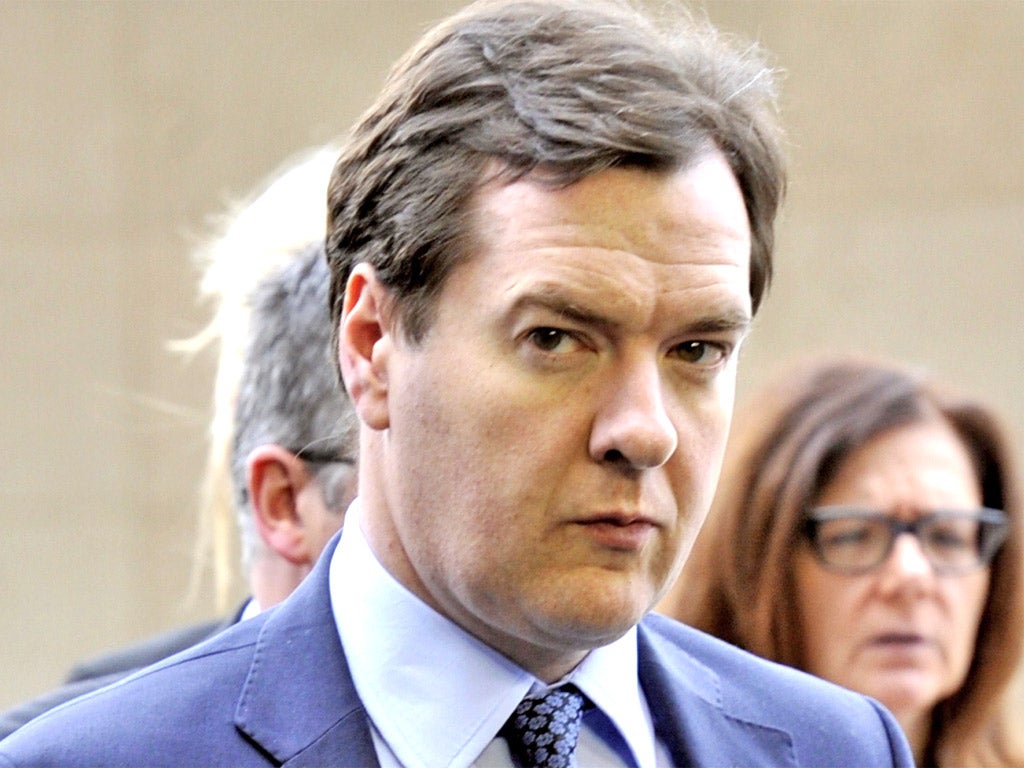Oliver Wright: In the Chancellor of the Exchequer we do not trust

There is only one thing deteriorating as fast as Britain's public finances – and that is the public faith in George Osborne's ability to deal with the problem.
A new poll yesterday showed that trust in the Chancellor is at an all-time low, with just 16 per cent of people believing that he is the right man to see the country out of the current economic woes.
They may well be right. Because the problem facing Mr Osborne is that he has staked his political reputation of rigidly sticking to what, even in 2010, was an ambitious deficit reduction plan.
Since then, the eurozone crisis and its choking effect on worldwide business confidence and growth has played havoc with all his assumptions for GDP, borrowing and public spending.
The latest figures yesterday show the economy is stalling, and badly needs a new plan. But politically, such a move is virtually impossible for Mr Osborne, because he has gambled his economic credibility on his strategy – which is deficit reduction above all else.
All he can do is search around for small measures to promote growth (which don't increase public borrowing) rather than embark upon the kind of massive fiscal stimulus that a growing number of economists now say is necessary to kick-start growth.
If Mr Osborne did change course now, Labour (and Ed Balls in particular) could destroy him. And that presents David Cameron with a problem: if the economy does not improve at some stage, the Prime Minister will have to decide whether to sacrifice his Chancellor for his Government.
A replacement to Mr Osborne would have greater political freedom to do what is economically necessary. True, Labour would still crow – but if it was done soon enough and was showing signs of working by May 2015, the electorate might be forgiving.
But that is still a remote possibility. Mr Cameron is loyal. He and Mr Osborne are still close and the decisions on deficit reduction were taken collectively.
It is more likely (and more depressing) that Mr Cameron may end up sacrificing economic growth to save his Chancellor.
Join our commenting forum
Join thought-provoking conversations, follow other Independent readers and see their replies
Comments
Bookmark popover
Removed from bookmarks